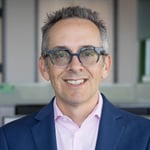 I was listening to a podcast (not the amazing In Network podcast that I co-host, which you can listen to and subscribe to on all major podcast apps, but still, thanks for asking) a few weeks ago when an emergency medicine physician talked about calling Poison Control for his patient. Many of you may have called the Poison Control Center when your child ate that lipstick, or you accidentally gave little Johnny two doses of amoxicillin in the morning, but did you know that we physicians also call those folks when we have to treat potential toxic ingestions? Well, we do, and the dual role that the Poison Control experts play made me wonder if we could do something similar when it comes to supporting physicians on technology.
I was listening to a podcast (not the amazing In Network podcast that I co-host, which you can listen to and subscribe to on all major podcast apps, but still, thanks for asking) a few weeks ago when an emergency medicine physician talked about calling Poison Control for his patient. Many of you may have called the Poison Control Center when your child ate that lipstick, or you accidentally gave little Johnny two doses of amoxicillin in the morning, but did you know that we physicians also call those folks when we have to treat potential toxic ingestions? Well, we do, and the dual role that the Poison Control experts play made me wonder if we could do something similar when it comes to supporting physicians on technology.
Let me level set a bit for those of you who have been lucky enough never to have had to interact with Poison Control. In the United States, to reach the closest Poison Control Center, one needs to simply call (800) 222-1222 (or nowadays, you can start at their website as well). When you call, you’ll reach an expert who will calmly get the necessary information to determine what steps – if any – are required for treatment. They ask for very specific information (e.g., what kind of lipstick was it, when did the child eat it, how is the child now, etc.) and then ultimately suggest a course of action, such as just monitoring, taking the child to the hospital, or following up with the pediatrician the next day. It’s quite impressive to hear about how they can calm their callers and give them the exact actions to take next. Further, the Poison Control folks will typically call you back once or twice to see how the patient is doing and suggest any next steps if necessary.
As I mentioned earlier, physicians also use Poison Control when we’re treating patients who might have had a toxic ingestion. We speak with the same experts that the general public does, but we use bigger words sometimes! That said, whether we use “doctor speak” or not, the process is nearly identical. We give the operator the essential information, and they use their training and resources to suggest a course of treatment. And similarly, they call us back in our clinics or the emergency department to follow up and see how the patient is doing. In fact, from the physician's viewpoint, the Poison Control Center acts much like a consulting physician, giving the referring doc their recommendations and following up to ensure the patient is doing well.
As I thought about how toxicology experts across the country could seamlessly move from talking to nervous parents and patients to focusing on complex treatment algorithms that might need to be explained to physicians, I wondered if there were lessons for clinical leaders who support physicians as they use technology. Can we easily transition from callers who have minimal knowledge of the systems we use to treat patients to callers who know a lot about the electronic health record (EHR) they use, but don’t perform a specific workflow frequently enough to ever gain mastery? I think the answer is yes.
There are times when IT folks and clinical informaticians need to consider physicians not as experts, but instead as “infrequent flyers” who don’t know – or want to know – how the system works or why it works in a particular way. For instance, when a doctor needs a password reset or wants to report a documentation template that contains a spelling mistake, there are few questions needed and typically no specific follow-up. This is when we on the IT side should ask as few questions as possible and let our clinical user get back to work with minimal delay.
At the other end of the spectrum are inquiries from physicians who are EHR experts. This type of interaction requires a completely different set of skills, akin to dealing with emergency medicine or pediatric experts calling Poison Control from the hospital or clinic. For these sorts of calls, the specific hows and whys and “what we’re thinking” details matter. These clinicians will expect that the person on the other end of the call knows the EHR vendor’s lingo, knows the infrastructure options behind the scenes, and can engage in an intelligent back-and-forth. They will also demand timely and regular follow-up as to the expected resolution of the issue or concern.
A clinical help desk needs to have the folks who can support both sorts of users: those with straightforward needs and those with questions or concerns that will require in depth knowledge, analysis, and response. Just like the Poison Control operator who deals with patients, parents, and emergency medicine physicians, our IT support specialists must apply their unique skills to meet the caller (or emailer!) where they are to get them where they need to be.